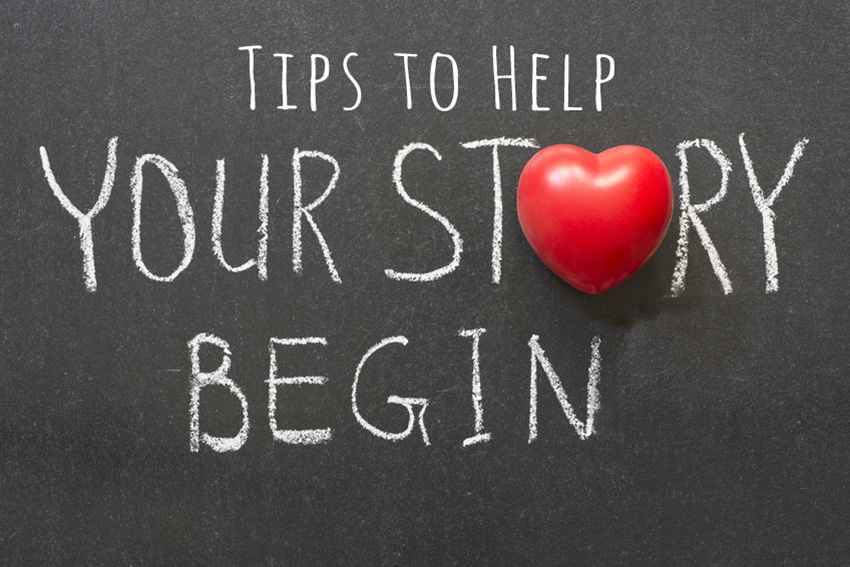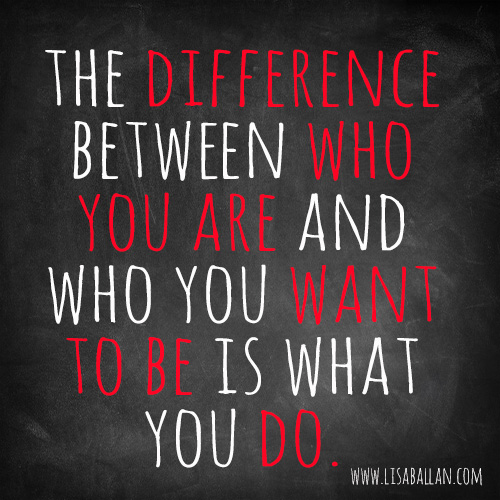

What is it you would like to begin doing that would make you feel fulfilled and happy? Today, I’m going to share a few of my tips if you want to begin a writing career. It’s obviously near and dear to my own heart and something I work on regularly.
Here are a few ways I found to help get my writing started.
1. Schedule time to write and keep that appointment as if it was for a job. Get out your calendar and figure out your job and family obligations then see what is left. Pick some time to sit down and begin the process each week.
2. You have to show up. Just because you put it on the calendar does not mean you will actually show up at that time to begin writing. Sometimes family or friends invite you to do things and you will do that over writing. If you seriously want to be a writer then you must show up to those scheduled times.
3. Create a notebook of ideas. You can also use an app such as Evernote to do this but either way records your ideas no matter how strange or out there they may seem. The more ideas the better as they will be things you might use or might not in future writing.
4. Pick up a writer’s promptbook. This will help you get into the groove of writing at those times you have scheduled. Open up the book and read the writing prompt and begin writing about it. An example would be, “What was your worst hair day?” Use these prompts to get you in the habit of writing something even if it’s only 500 words each time you sit down to write.
5. Take an idea and write about it. Those ideas you were saving pick one and begin writing about one of them. It could be a poem, a short story or a novel, just begin writing.
6. Writing a book-what type, fiction or non-fiction? Pick one and focus only on that one until your book is completed. Don’t try to do multiple books at once as it can become overwhelming.
7. Character Sheets. If its fiction then begin writing about your main characters, fill out a character sheet for each character, full name, birthday and age, where do they live, what type of place do they live, what type of job do they have, what do they typically wear, what type of personality do they have, what are there values and more. Let your mind run with this one because the more descriptive you are about your characters the better it will be when you write about them.
8. Choose a place. Just like your characters you need a place that these characters will interact, city, locations, what’s around the area, mountains, lakes, desert and so forth. Be descriptive about all of these things too as it will help you when you begin writing your book.
9. Outline for the book. Not everyone likes to do outlines for their books. I like to mind map my book. It allows me to take one thought or circumstance that my main character is going to have to deal with and it lets me branch off from their as to what will happen from those choices and then what other events will take place based on my idea for the book. If you have a bad guy involved in your books its also allows you to add in what things they might do which will affect your main characters choices.
10. Move your outline or mind map of ideas to Word or Scrivener. I like Scrivener to write my books. It’s pretty easy to understand and it allows me to take my scenes from my mind map and give brief descriptions of them on a 3×5 card so I know what I need to write about. It also allows you to rearrange your scenes to create chapters.
11. A little research. If you have never lived or visited a place such as London and you want your book to take place there then you need to do a little research to know more about the area in order to describe it. Don’t let this portion of your writing time take to long. You will eventually start duplicating information and that will be the point where you need to just start writing.
11. Once you begin to write on your book, don’t stop. This is called a rough draft and the point of it is to get your ideas and thoughts down as quickly as possible so you don’t lose them. You work out all that grammar, spelling and editing stuff too much later.
12. Now that you have all of your ideas down arrange them. You might have your hero across town dealing with some major event while your villain is at the same time plotting, watching or acting upon something that your hero will see later. So watch your timeline for your scenes and begin putting them into an order as to how they would take place.
13. Once all of your ideas are down turn on spell check. There is a feature in scrivener to add spelling and what not and I don’t even bother to make that usable until my ideas are completely down. Then I begin to do some basic read through and fixing the obvious stuff, like words left out, transposed words or letters for a word, spelling errors and anything I notice that needs fixed.
14. Now it’s up to you whether you edit your book or send it off to an editor. Many people read their book out loud and make changes based on sentences that seem clumsy, words they have used over and over again like ‘looked’, saying who is speaking and using names to much or anything that seems awkward when they read it. Reading it out loud gives you a sense of what others will experience, if it flows properly and if you get your point across easily enough. Once you have done your edits to the best of your ability then you send it to an editor.
15. Find an editor for your genre specifically. This process might take a few times to find the right one. Just as you click with people you speak to or interact with, you will also click with the right editor. They will understand what you are trying to say and not change your writing style, and only edit the things that need to be addressed.
Differences for a non-fiction book:
1. You need to know what idea you are writing about and if it needs research to emphasize your points. Pick something you are an expert at that you could share important information to your readers. Let’s say you are writing about health, you may need to have facts about certain aspects to inform the readers of particular information in order to help you make your point. Be sure to have all the facts, a list of where you got them and any other notes you take about issues you need for your book so you can post them in the back of your book. Also, you may wish to use quotes or sayings in your book, or perhaps scripture and all of these things need to be shown sources and you will need to keep track of each one. Some things might even need permission to use. Keeping a list of all of these things will save on time later.
2. You may need to have testimonies or interviews. Making a list of people you might wish to talk to and interview, or have them give a personal story about what you are writing about is important. You will need to plan to speak to those people and gather that information for your book.
3. Develop a list of topics you wish to cover, as they will be the headings for chapters you can create for your book with your information and research and perhaps a story or interview in each. Your overall book may be health but you may have a chapter on exercise or a chapter on diet. Each of those chapters could have sections like aerobic exercise then strength training exercises and so forth.
4. Make sure you have a point you are trying to share. Don’t make a book of just facts and not have a direction to your book. You want the facts to coincide with your major point to your book and give the reader information they need, but also lead them to what you are trying to share. Figure out the key points you wish to make, figure out which section of your book they need to be in and lead your reader from one chapter to the next with your story.
5. Making time to write through getting to an editor is the same no matter which type of book you wish to write.

This is obviously the short version of how to get started with a writing career as some of those tips have other steps to go with them, but this gives you a good idea of what it will take and if that intrigues you enough to want to get started today. If writing isn’t the area you wish to attempt, then begin research to find some basic steps to get you started in the area of your particular interest. Photography takes learning the camera and getting out there and taking some photos. Being a chef takes a specific food dish you wish to create and trying things until you make it your own.
It takes action. You have to stop thinking about doing it and get out there and do it. There is no time like the present. The world is waiting for you to share your gifts with them. They want to hear your story in whatever method you choose to tell it. Have courage and believe. Take that first step.
Have a blessed week!